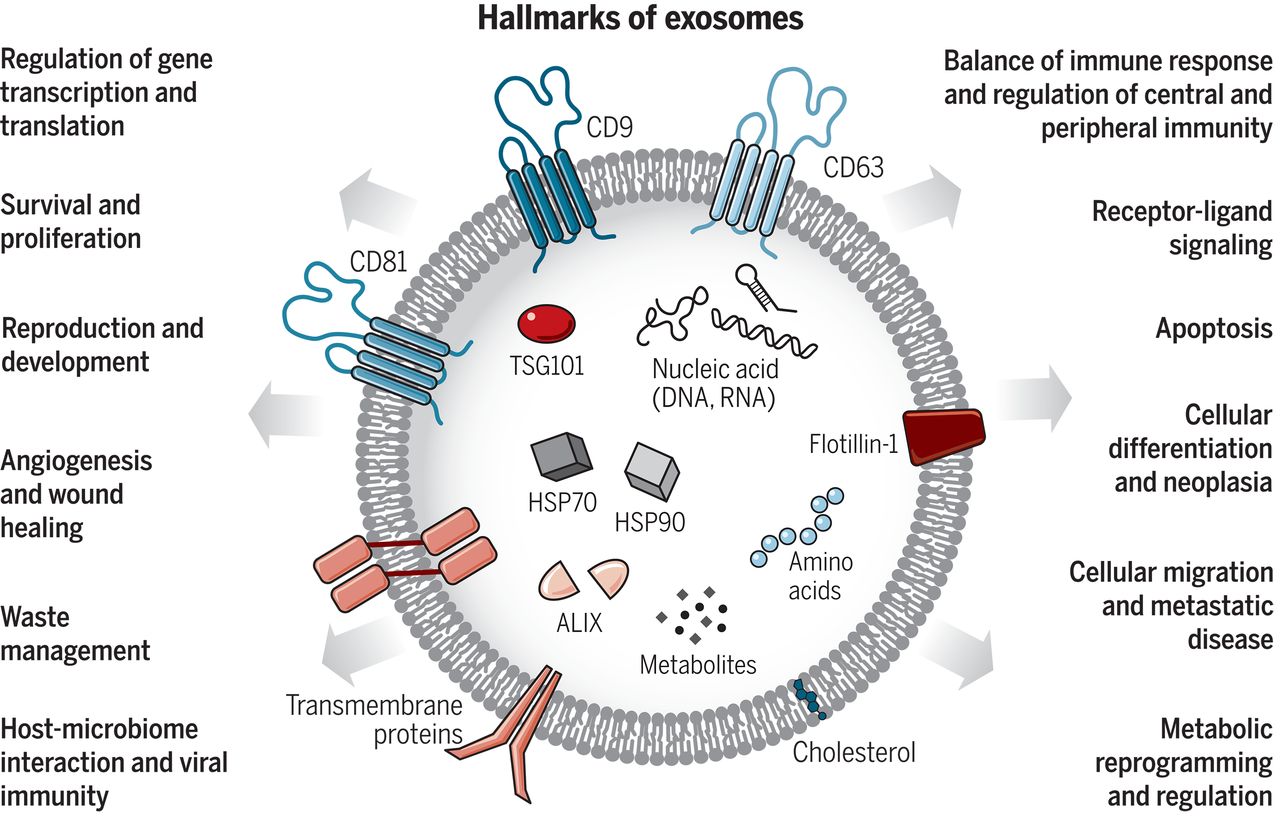Organicell Regenerative Medicine: Advances of Exosome-Based Therapeutics in the Clinic
Author: Greta Gohring (Research Assistant, Organicell Regenerative Medicine)
Regenerative Medicine is a rapidly expanding sector of biotechnology with numerous innovative therapeutics. Regenerative medicine encompasses a multitude of specialties such as orthopedics, immunology, and cardiology, while following common trends within the fields of tissue and cell engineering. In contrast to common symptom-targeting therapeutics, which temporarily relieve and subdue conditions, regenerative medicine is designed to reprogram damaged or diseased tissues back to a healthy state. Through reprogramming, regenerative medicine has the potential to provide long-term effects in chronic and reoccurring symptomatic diseases.
Stem cell and other cell-based therapies have proven to be strong therapeutic candidates for many regenerative and tissue restorative applications. However, complications with post transplantation viability, clinical reproducibility, and large-scale development have stalled these products in the path to drug approval.
In an effort to enhance and build from the lessons learned in cell-based research and clinical trials, researchers have begun to shift focus to cell-to-cell secreted factors such as extracellular vesicles. Extracellular vesicles, secreted from the cell membrane or the cell’s internal recycling pathways, carry many of the same molecular messengers and factors found to be therapeutic in cell therapies.
Therefore, through the development of technologies to isolate extracellular vesicles from sources such as cell cultures and biologic fluids, extracellular vesicle-based therapies have begun to take center stage in regenerative medicine clinical applications.
Therapeutic Potential of Exosomes
Exosomes are a subtype of extracellular vesicles derived from the cell’s recycling pathway, specifically the endosome. During exosome formation, small nucleic acids, enzymes, and other molecular mediators are packaged into lipid membranes and secreted out of the cells. These exosomes are then absorbed by surrounding cells as a form of cell-to-cell communication.
The absorption of exosomes into various cell types can lead to modifications in gene expression, cell metabolism, and other signaling pathways. Depending on the cell of origin, exosomes have been linked to regenerative effects via the suppression of pro-inflammatory response and immune activation, as well as the promotion of cell proliferation and enhancement of tissue wound healing.
For the entire article, please click on the link below:


